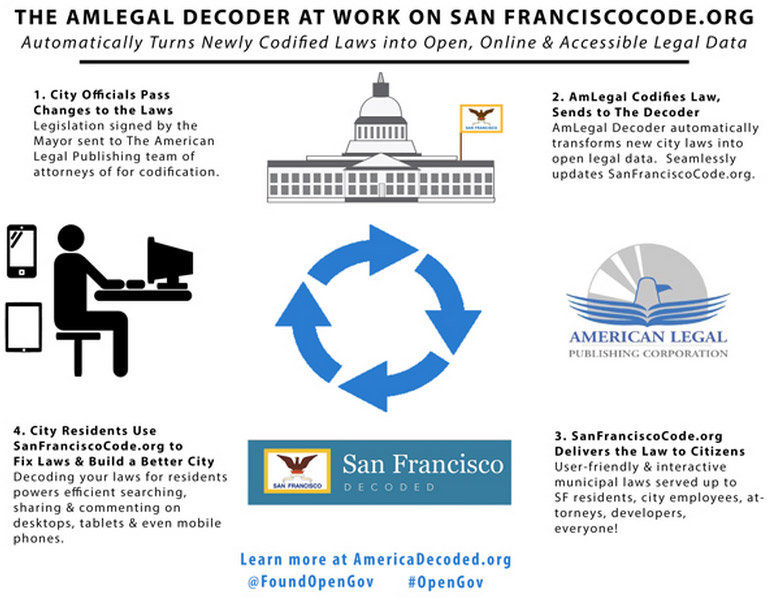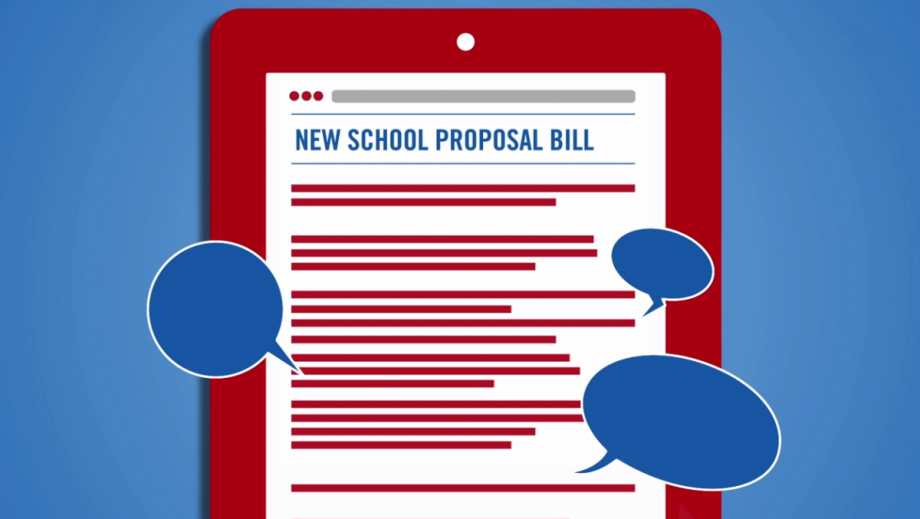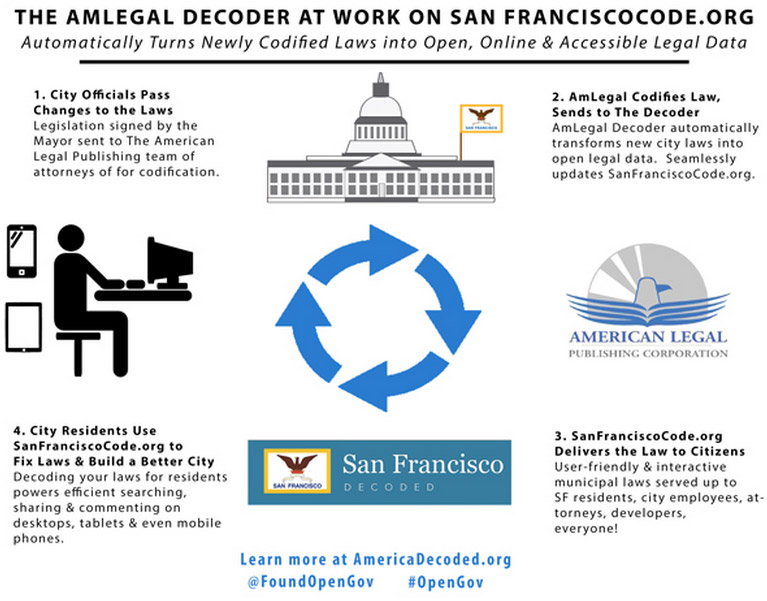
The next big thing in Open Gov is a culture shift
Video: Meet Madison, a collaborative policy drafting platform.
Seamus Kraft is the co-founder and executive director of The OpenGov Foundation, as well as a 2014/2015 Shuttleworth Foundation Fellow. Related Link
“Communities will be able to see, track and participate in lawmaking online with $750,000 in new Knight Foundation support to OpenGov Foundation” – Press release
“Paley Center’s ‘Next Big Thing’: Open Gov” by Erin Gromen on Knight Blog
“Once people can get their hands on [their local laws and legislation], they can say, ‘Oh, wait. I don’t agree with this one, or we can make this better’…That’s a revolution in the way laws are changed.”
— Liana Derus, San Francisco State University student and SanFranciscoCode.org Community Member
Since launching The OpenGov Foundation in early 2013, we’ve been working towards the future so eloquently painted by Liana–one in which all Americans can access, understand and participate in the decisions that affect their lives. To get there, we need to refashion the very core of our local, state and federal democracies–the laws, legal codes and lawmaking process itself.

An initial $200,000 Knight Foundation seed grant, which we received in July 2013, helped us kindle our dream for digital democracy into something far greater than the first version of the Madison online lawmaking tool we built in Congress to help stop legislation many feared would limit Internet freedom. Now we’ve been given the chance to build on that work, and we’ll be moving forward with some valuable lessons we’ve learned in the last year and a half.
Build with not for (h/t Code for America’s Jen Pahlka)
“I’m excited to work with The OpenGov Foundation to provide an innovative, transparent way for D.C. residents to get involved with their government . . . Madison DC will ensure that all residents have an equal opportunity to play a role in how Council’s legislative process.”
— D.C. Councilmember Tommy Wells, June 23, 2014
You can’t solve problems you don’t fully understand. We’ve been lucky to partner with members of the D.C. Council, and to speak with chiefs of staff and legislative directors in the U.S. House of Representatives, to better grasp how the legislative process works now, and how we can help make it more inclusive and efficient for the future. Our work wouldn’t make any sense without the community members and leaders we’re getting to know, and we’re excited to keep building solutions with them.
Partner>Borrow>Build
“We are proud of our commitment to user-friendly open data and even prouder to partner with The OpenGov Foundation to further increase transparency in local government through enhanced accessibility to municipal laws.”
–Stephen G. Wolf, president of American Legal Publishing Corp.
Partnering with other civic technology groups, state and local government, even private-sector vendors, is often the best way to address a problem. If there’s no partner, reuse something already built. Nothing built? Only then start civic hacking. Our alliance with American Legal Publishing Corp., started in San Francisco and since expanded, has enabled us to move forward with The State Decoded project in a vastly more effective way. Instead of “decoding” thousands of cities one by one, we’ve been collaborating with all the stakeholders involved to everyone’s benefit.

Understand your audience
“It takes a willingness to try new things. But it’s going to free you up to do the rest of your work more effectively. What we discovered is that by spending a little bit of time and energy up front to figure it out, once we published [the ‘decoded’ D.C. Code of Laws], it was easy street for us.”
— David Zvenyach, chief counsel for the Washington, D.C., Council
Users need to understand exactly how they will benefit from any proposed innovation. When approaching potential users, many civic technologists focus on the outside government benefits of their app or API. That’s a good start. But we’ve learned well that that’s not enough to create change within government. Waldo Jaquith of the U.S. Open Data Institute is brilliant on this. “It’s new and shiny and better” is never sustainable. Just listen to the D.C. Council’s top attorney, Dave Zvenyach, on why the city ultimately embraced open legal data and DCDecoded.org:
Video: Watch D.C. Council General Counsel David Zvenyach on decoding the law.
It’s not about the tech
Changing the culture of any institution or community takes time, patience and perseverance. One can’t helicopter in for a weekend hackathon, a few months or even a year and expect to create permanent change.
Sustainable culture change is precisely why we helped start the nationwide Free Law Founders coalition. And it’s why we’re taking these hard-earned lessons to heart. Over the next two years, with the continued support of Knight Foundation, we’re excited to deliver–to paraphrase SanFranciscoCode.org community member Liana Derus–an evolution in how the people inside and outside of government make, access and understand the laws that affect their lives.
Contact Seamus Kraft on Twitter, @SeamusKraft, or write him a note.
Recent Content
-
Community Impactarticle ·
-
Community Impactarticle ·
-
Community Impactarticle ·


